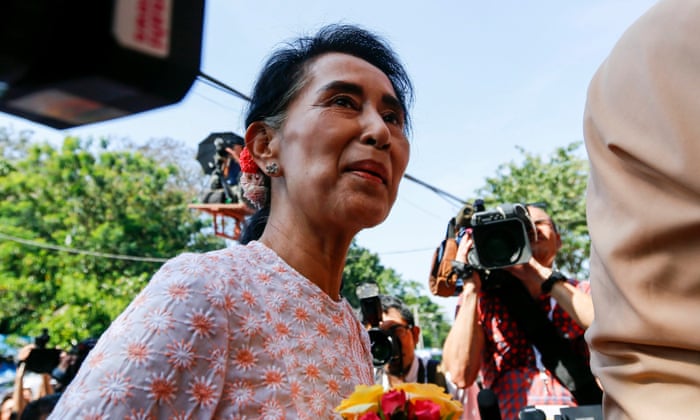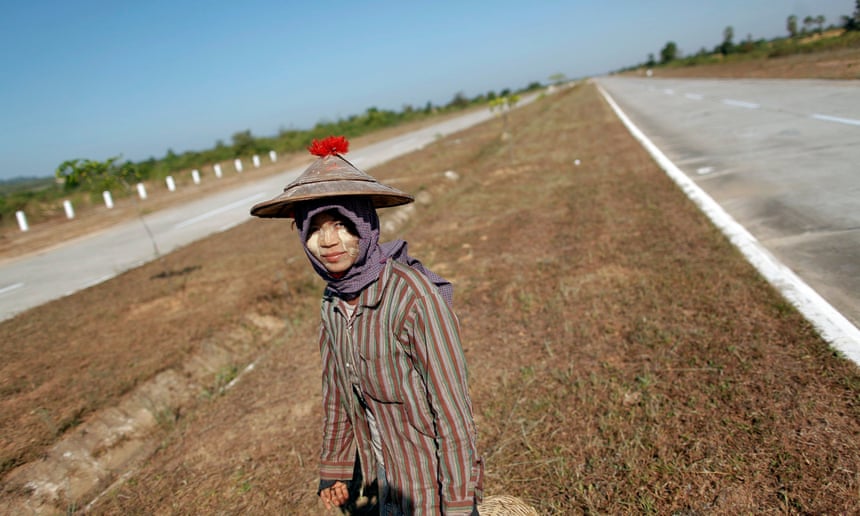Myanmar's decision is clear. But will the military let Aung San Suu Kyi govern?
Her NLD party may have won the general election in a landslide, but Aung San Suu Kyi’s enemies from the junta era still hold the keys to power
The last time
Aung San Suu Kyi won a landslide election victory, the army generals who rule Myanmar rejected the result, placed her under house arrest and jailed thousands of her supporters, many of whom were brutally tortured.
That was in 1990. But 25 years later, with “Amay Suu” (Mother Suu) and her National League for Democracy (NLD) once again triumphant, the key question is whether the men in uniform will accept the people’s verdict and allow her to govern.
They claim they will. President Thein Sein, a former general who took over from the country’s military junta in 2011 after a bogus election process boycotted by the NLD, appeared fatalistic about the result. “We have to accept our voters’ desire. Whoever leads the country, the most important thing is to have stability and development,” he said. Thein Sein sounded like a disappointed man contemplating retirement, not one plotting another coup against democracy.
“We lost,” said Htay Oo, leader of the military-backed ruling Union Solidarity and Development Party (USDP). “We have to find out the reason why we lost. However, we do accept the results without any reservations.”
Yet these concession speeches may not count for much. It is hardline members of the old guard – who ran the junta before 2011 and treated Aung San Suu Kyi as a mortal enemy, trying to assassinate her on at least one occasion – who hold the key to what happens next.
Belatedly recognising the enormous damage caused by the country’s political and economic isolation, the junta installed Thein Sein four years ago as the new, civilian face of Myanmar. Now they will blame his moderate reformism for their crushing defeat.
The old guard will also fear a settling of scores if their former foes and victims take power, despite Aung San Suu Kyi’s conciliatory words and non-violent approach. “It is important not to provoke the candidates who didn’t win,” she told supporters on Monday.
General Than Shwe, the strongman leader of the junta for nearly two decades, has more to worry about than most. The regime of which he was a part committed appalling human rights abuses. According to a Human Rights Watch report on the aftermath of the 1990 election, use of torture was widespread.
“Torture of political prisoners is believed to be routine and has included severe beatings, electric shock, immersion in water for long periods, sleep deprivation, peeling off skin by rubbing wood or bamboo repeatedly against a person’s shins, and applying salt or curry powder to wounds made with a knife or bayonet,” HRW reported.
Even after stepping aside in 2011, Than Shwe was widely believed still to be pulling the strings behind the scenes. He and other generals live in a secluded compound in a restricted military zone including bunkers and tunnels in Naypyitaw, the capital city he built to replace Yangon, reportedly on the advice of astrologers. Naypyitaw means “Abode of the King”.
The baleful influence of the old guard aside, the fact the army still holds many political aces spells trouble for Aung San Suu Kyi. Even if the NLD wins a large percentage of the 664 parliamentary seats, the USDP, meaning the military, will automatically retain 25% of them under the terms of the junta’s gerrymandered constitution.
Moreover, Aung San Suu Kyi is barred from becoming president because she married a foreigner – the late Oxford historian Michael Aris – and has two British sons. This is another constitutional tripwire deliberately set up by the generals.
Aung San Suu Kyi has said she will nevertheless rule the country by positioning herself “above the president”. But that may prove a hard trick to pull off, especially since parliament will not elect a new president until February next year.
Crucially, the military will retain several key ministerial posts despite losing the election. These portfolios include the defence, interior and border and police ministries. Under the constitution, the military can take direct overall control of the government, including management of the economy, if it deems it necessary.
As matters stand, the military’s National Defence and Security Council is a more powerful body than parliament. Thus an NLD government would have no say, for example, if the army decided to continue attacks on ethnic minority groups and persecution of Myanmar’s disenfranchised Rohingya Muslim minority. This has ledcampaigners to suggest real power will remain where it has always been, despite the NLD’s success.
Managing this delicate situation will require a high degree of political skill and subtlety on Aung San Suu Kyi’s part if she is to keep the military on side and in barracks, while addressing Myanmar’s many divisions and problems.
Her unmatched international standing and proud lineage – she is the daughter of Aung San, Myanmar’s independence leader and founder of the Burmese army – will help. But a host of other issues such as Buddhist chuavinism, ongoing political repressionand high poverty levels will complicate her task.
After a quarter of a century in the wilderness, Aung San Suu Kyi has made a glorious comeback. Whatever the final election tally, she has given a memorable thrashing to the generals who persecuted her and so many others for so long. But she will not be able to govern without them.


No comments:
Post a Comment